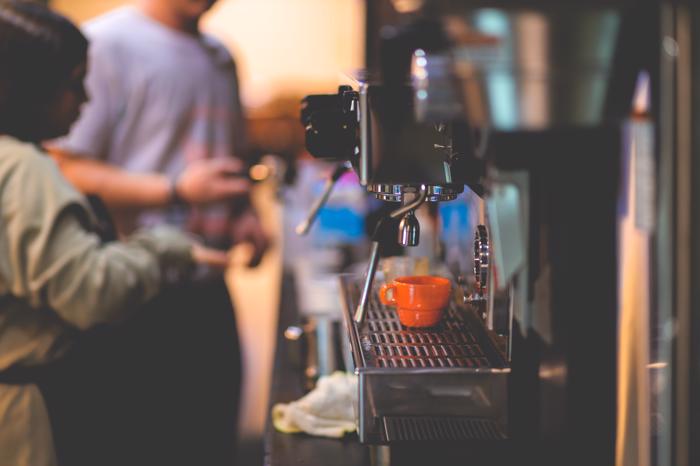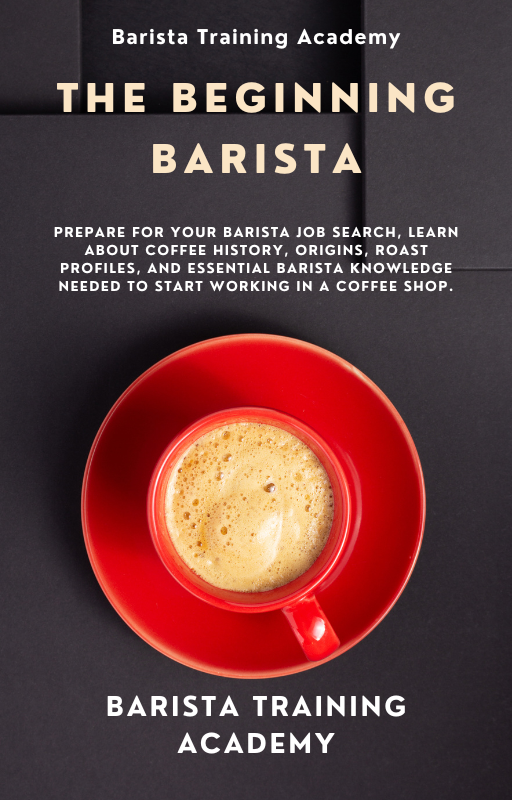Learning Barista Skills
What Barista Skills Do You Need?
In recent years, we have witnessed a rise in demand for specialty coffee all over the world. According to the statistics, most Americans drink from 2 to 3 cups of coffee a day. Every year coffee finds more and more fans among customers of all ages and backgrounds. The demand for coffee is forecasted to grow even further, which means that baristas will never stay without work.
With hundreds of new coffee shops and mobile coffee trucks opening all over the United States, coffee shop owners are looking for new baristas. They are ready to teach them all the necessary barista skills. Last year, the revenue of the coffee industry in the US grew by 4.6%, and it’s expected to grow annually by at least 3.6% per year. This is good news for all prospective baristas. The growing market will work for many new coffee professionals, and you can become one of them.
Becoming a barista might be a good idea if you are looking for a well-paid side-hustle or are planning to change your career but don’t know yet what to do. The benefits of being a barista are not only good pay and free barista training. There are many more perks to start your barista training now:
- Free coffee and discounts
- Socialization
- Change in scenery and lifestyle
- Healthcare benefits
- Flexible schedule and part-time job opportunities
- Skills that can be used in any industry
- Secure job and career prospects
What a Barista Job Entails
A barista job requires punctuality – you need to follow the established procedures of preparing outstanding coffee drinks strictly. Upon employment, every barista receives an employee handbook that they are supposed to know thoroughly and adhere to.
A barista also needs to know all the menu items that are being served in a coffee shop. This means knowing the contents of espresso-based and other drinks, snacks, coffee beans, gift packs, etc. The best to do so is to try everything yourself and develop your coffee vocabulary so that you can describe a product to your customers.
Barista duties also include customer service – welcoming coffee shop patrons, answering their questions in a friendly manner, helping them make decisions, and accepting cash or card payments through a POS system.
A barista is also expected to take care of the inventory, operate and maintain coffee equipment, follow safety procedures, and be ready to mentor other baristas and provide barista training. You have to be ready for anything as you may work for a variety of coffee shop business concepts – each with its own menu, target market, and uniqueness.

Learning Barista Skills
Barista Skills You Need To Work In Coffee
Unlike your personality and communication skills, the practical skills of being a barista are developed on the job in a coffee shop. If you have never worked at a bar or a coffee shop, you probably don’t have these skills yet. However, with the online barista training course, you can start developing your barista skills at home and later master them at your workplace.
Coffee Grinding (It's more of art & science than you might think!)
Grinding coffee is particularly important because it affects the taste of the coffee. First of all, the ground size. Coffee grounds can’t be too coarse. Otherwise, you’ll get a very watery cup of coffee. It can’t be too fine either because it will result in a very condensed and bitter espresso shot. The particle size should be a little smaller than sugar particles on your fingers.
However, every grinder is different, and you have to know how to set them up to reach the desired grind size. After grinding coffee into a portafilter, you want to tamp it with about 30 lbs of pressure. In the beginning, if you don’t have a smart tamper, you can use scales to see how much pressure you apply.
Moreover, you need a different grind size for pour-over – the grind should be coarser because it stays longer in contact with water and can release all its solubles.
Pulling Espresso
Pulling or extracting a coffee shot is the most important step in drink-building. Espresso is a base for most coffee drinks, so the quality of your espresso will influence the coffee taste.
The golden rule is to use 20 g of coffee grounds to get 25-30 ml of drink in 25-30 seconds with an espresso machine's help.
Dialing in espresso is central to any barista training. This includes adjusting the grind size, the coffee dose, the water temperature, and the pressure of water coming from an espresso machine. Any of these variables can change the taste of espresso. That’s why it’s important to change only one variable at a time when dialing in.
Milk Steaming
Steaming milk will be a necessary skill to prepare such drinks as a latte, cappuccino, steamers, mocha, etc. Milk steaming starts from a loud sound that milk produces when you start introducing air into it. As soon as the milk becomes warm, you lift the pitcher and heat the milk. You want to get a firm but fluffy foam that is good for latte art. What you want to avoid are large air bubbles that taste bad and look awful on the coffee.
Coffee Serving
The way coffee is served determines the success of your customer service. Some coffee drinks are traditionally served with a glass of water, for example, espresso, cortado. Some coffee shops can have their own practices of serving coffee. For example, at Starbucks, they write your name on a cup and then call you by your name.
There are some very general rules to remember. Suppose you serve a cup of coffee place it with the handle looking to your left side. For your customer, the handle will be on the right side. If you are drawing latte art, make sure you serve straight to your customer (and upside down for you).
But the most important thing that every cup of coffee is served with a barista's genuine smile. This is what propels customers to come back and leave more generous barista tips.
Traits That Would Be Helpful As Barista
While you don’t need any experience to become a barista or enroll in barista training, you need to have the right personality and, of course, a love for coffee. Sometimes your personality can be more important than your skills. Skills can be taught, while personality is something you are born with.
There are some barista traits that all coffee shop owners are looking for. A barista is expected to be:
- Enthusiastic about work
- Passionate about coffee
- Friendly and polite
- Responsible
- Ambitious and goal-oriented
- Flexible to work in various environments
- Good communicator
- Team player
- Pro-active
- Reliable
- Neat and clean, etc.
It’s a good idea to mention these traits (and many others) in your barista resume and expand them in your barista cover letter. However, don’t lie to your prospective employers – name only those traits that you actually possess and can talk about during your barista job interview.
Is It Hard To Be a Barista?
A barista profession is not considered to be very difficult. However, there are still some barista job aspects you should know about before you start your online barista training. Being a barista can be physical work. Constant bending, lifting, and grinding coffee can wear you out by the end of your shift.
Early hours are a big challenge for many. You will have to sometimes work in the early mornings. It's not unheard of to be at work serving coffee by 5 a.m. sometimes. Early morning preparation is important for your coffee business. This can take up to an hour. The espresso machine needs time to warm up. You may need to receive shipments of inventory and arrange food and snacks as they come in. And of course, you need to constantly clean and make your workstation ready for a full day of work.
Since baristas often accept deliveries at the door, they might need to carry the goods inside the coffee shop. Coffee bags, milk packages, boxes full of bottles or snacks can be heavy sometimes. Lifting heavy bags and boxes, bending down numerous times to pick things up, and repetitive physical movements can be challenging for some people.
ergonomics
If you want to prevent physical strain, you are strongly advised to review your workstation layout and arrange it efficiently and ergonomically. A well-organized working area where the fridges, syrups, knock boxes, and sinks are easily reachable can save you unnecessary movements and hassle behind the coffee bar.
It’s important that before you start your barista career, you learn what a barista job entails. While it’s a great job overall with many perks and benefits, you might face some challenges mentioned above. Your barista training helps you address these challenges by preparing you for the realities of a barista job.
Later, real work practice will lead to confidence. The longer you work, the more efficiency you develop, and things become easier.
Can I Be a Barista With No Experience?
Yes!
Unlike many jobs out there, you don’t need to have any experience to get hired as a barista. Of course, some big and expensive coffee shops might require previous barista experience, but the majority don’t.
It would help if you used the opportunity to launch your first career in coffee by getting online barista training. The online barista training course that we offer prepares you fully for the work as a barista. You will learn:
- How to write your barista resume, barista cover letter, and prepare for a barista job search and interview
- How to taste and describe coffee and talk like a coffee pro
- The basics of the customer service
- How to make your workflow faster and workspace more efficient
- The practical skills needed to brew coffee
- How to increase your barista tips

Barista Training Academy
Brought to you by Barista Training Academy, “The Beginning Barista” Your Ultimate Prep Guide to Getting Your First Job as a Barista.” It is an ultimate resource that is available online. It is affordable for anybody who is looking to start a career in the coffee industry. For more information, visit our blog.
